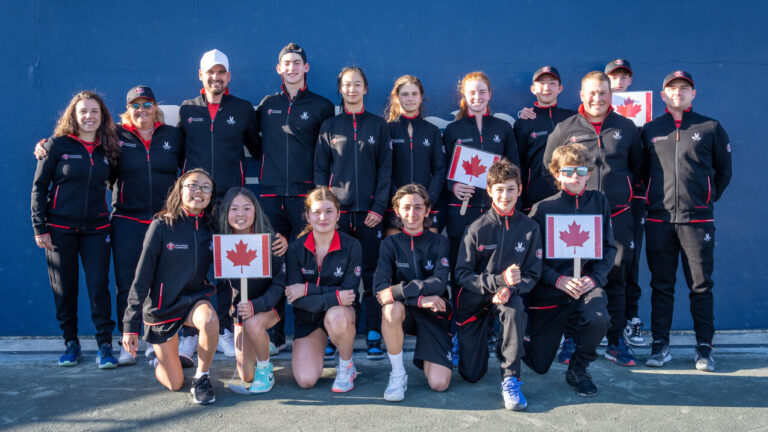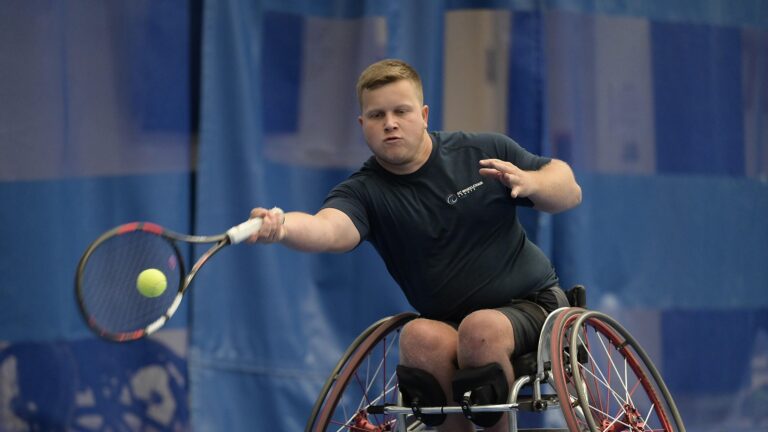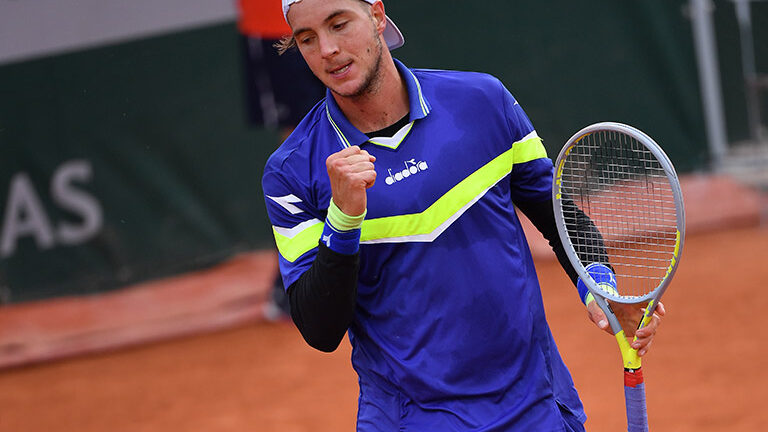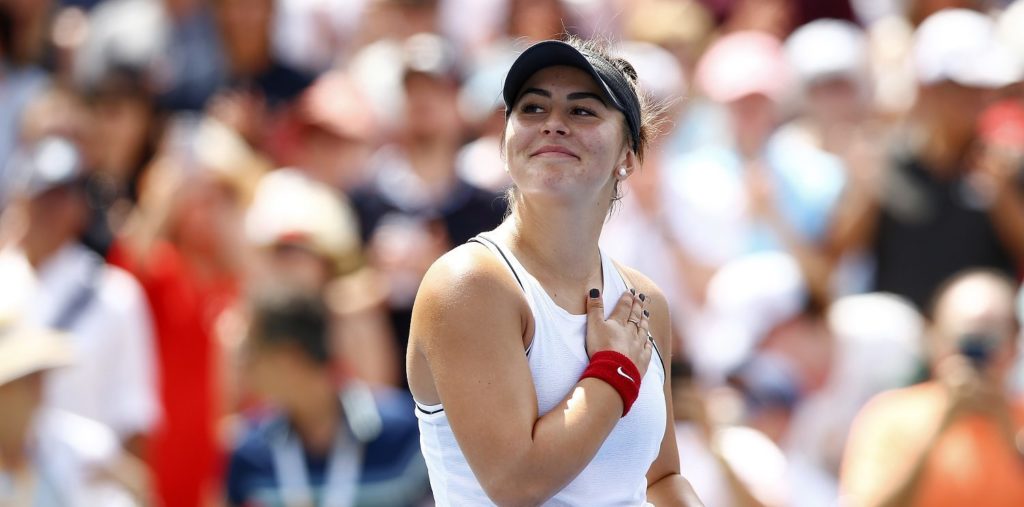
Photo by: Jared Wickerham/Tennis Canada|Photo by: Peter Power/Tennis Canada|Photo by: Ron Turenne/Tennis Canada|Photo by: Peter Power/Tennis Canada|Photo by: Jared Wickerham/Tennis Canada|Photo by: Peter Power/Tennis Canada|Photo by: Peter Power/Tennis Canada
It has been fascinating to follow Bianca Andreescu’s rise to the top of women’s tennis.
In the summer of 2015, when she was 15, she won the under-18 Canadian junior championship at the Ontario Racquet Club in Mississauga, Ont. On the same day Denis Shapovalov, 16, defeated Félix Auger-Aliassime, 15, for the boys under-18 title.
In the years since, Shapovalov and Auger-Aliassime gained more prominence – Shapovalov winning the Wimbledon junior title in 2016 and Auger-Aliassime following two months later with a victory at the US Open.
Injuries, including six months missed in 2016 with a stress fracture in her foot, and then on-and-off back ailments in 2017 and 2018 contributed to preventing Andreescu from having the breakthroughs that Shapovalov and Auger-Aliassime were making. She did reach the semi-finals at the 2016 US Open juniors and the 2017 Australian Open juniors – as well as winning the junior doubles titles with Carson Branstine at Melbourne Park and Roland Garros in 2017. But Shapovalov and Auger-Aliassime were always a step ahead – with their year-end 2018 rankings being No. 27 for Shapovalov and No. 109 for Auger-Aliassime. Andreescu was No. 178 in the WTA rankings.
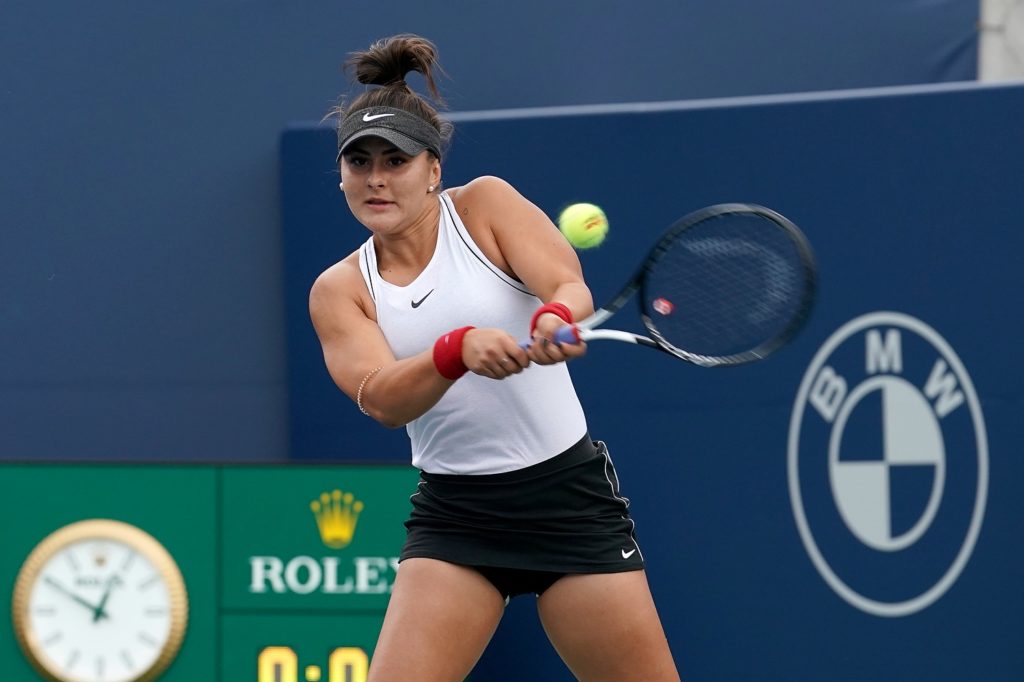
From the get-go in 2019, Andreescu, reaching the WTA final in Auckland, New Zealand, defeating Venus Williams and Caroline Wozniacki along the way, has been a transformed player. Following the Australian Open, she went on to win a $125K WTA event in Newport Beach, California, and then had her life-altering victory at the BNP Paribas Open (a WTA Premier Mandatory) in Indian Wells in March.
The rotator cuff shoulder issue that forced her off the tour – except for one match at the French Open in May – from March 25 to August 6 logically should have left her lacking match play and needing time to find the form to compete at the highest level. But Andreescu got back up on the tour merry-go-round at the Rogers Cup (a WTA Premier 5 event) last week almost without missing a beat, ending up being the first woman to win the Rogers Cup/Canadian Open in 50 years. It has vaulted her ranking from No. 27 to No. 14. She has also boosted herself into a spot – at No. 8 – in the Road to Shenzhen (China) standings for the year-end, eight women, $14 million WTA Finals in late October. (That event has doubled its previous high prize money with an undefeated winner receiving $4.75 million and semi-finalists getting a minimum of $690,000 – all figures U.S. dollars.)
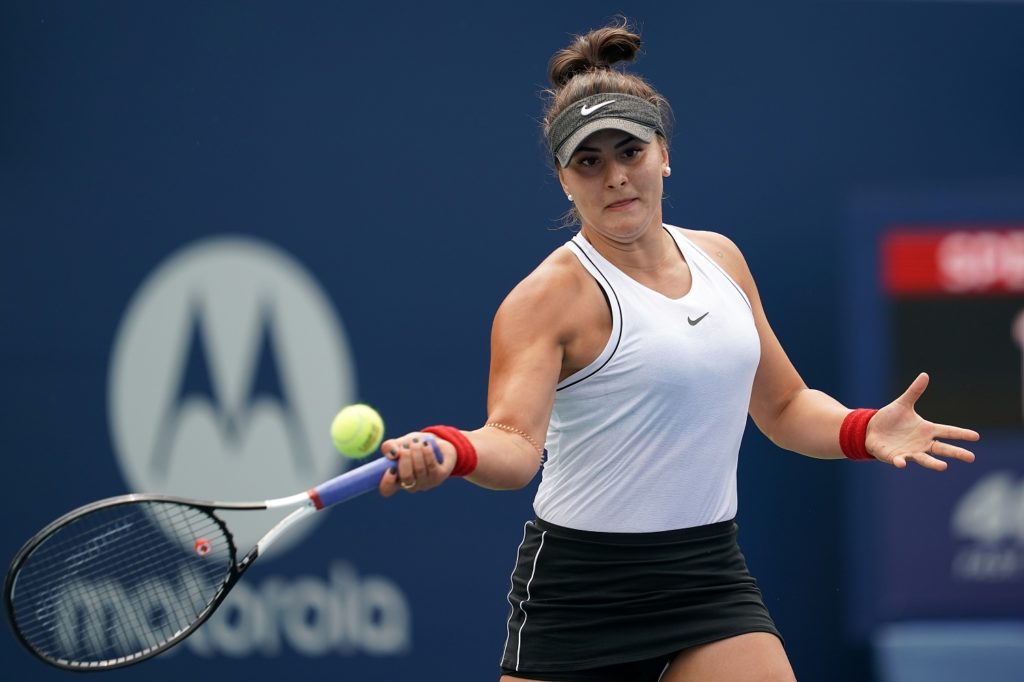
Andreescu has a 2019 match record of 38-4 for a 90.4 winning percentage – best on the WTA tour. No. 1-ranked Naomi Osaka is at 72.7 per cent (24-9) and No. 2 Ashleigh Barty is 84.7 per cent (39-7).
Three of Andreescu’s losses were in the first two months of the year – the Auckland final to Julia Goerges, the second round of the Australian Open to Anastasija Sevastova and the Acapulco semi-finals to Sofia Kenin. Her other loss – to Anett Kontaveit of Estonia – came at the Miami Open in March when she had to retire trailing 6-1, 2-0 with a shoulder that was too painful to continue.
Beating No. 6-ranked Elina Svitolina in the Indian Wells semi-finals and No. 8 Angelique in a memorably-dramatic final were outstanding accomplishments. But the fact that she could return at Rogers Cup and win the title, after just playing a single match in 134 days, is amazing.
It’s hard to explain except that super-talented tennis players as opposed to more grinding types – i.e. Roger Federer compared to Rafael Nadal on the men’s tour or Serena Williams compared to Svitolina on the women’s tour – tend to be able to start up again, after a break, at a high level more quickly thanks to their exceptional gifts.
And there’s no question Andreescu’s power, variety and exquisite racquet-work put her in a class of her own on the tour. Su-Wei Hsieh might be one comparable – but the 33-year-old from Taipei has none of Andreescu’s concussive power. It’s that power that’s sometimes overlooked – without it Andreescu’s finesse would have much less opportunity to be showcased.
A second factor in her remarkable comeback would be her hard-wired competitive drive. There’s no question it got her though testing matches against No. 5-ranked Kiki Bertens in the third round and No. 3 Karolina Pliskova in the quarter-finals at Rogers Cup. Both times the matches were balanced at 4-4 in the deciding set, and Andreescu won each time.
As often with a major success by an athlete, there were elements of fate involved.
Andreescu went to the Rogers Cup as a young girl and recalled a particular experience after she beat Pliskova last Friday. “The one that I remember clearly was when Belinda (Bencic) won against Serena (2015),” she said. “I remember telling myself, ‘I want to be like that’ because that was an amazing accomplishment. I think she was only like 18 or 19.”
So guess who Andreescu practiced with on Centre Court at the Sobeys Stadium five days before her opening match against Genie Bouchard – the now 22 years old and ranked No. 12 Bencic! And Andreescu held her own against the Swiss during their practice session, an early sign that maybe her level was getting to where she could threaten the top players.
After she beat Bouchard 4-6, 6-1, 6-4 in her opening match on Tuesday night, she said, “I think things just switched on for me in the second set. I started going for my shots more and that really helped.”
Following the 6-1, 6-7(7), 6-4 win over Bertens in the third round, Andreescu said about her three-set victories, “in those moments, I just let loose, really. Because I know when I do that, I play my best tennis.”
The victory over the 27-year-old Dutchwoman may have been the turning point in her run to the title. “This is a pretty damn good performance I’ve been putting up right now,” she said at the time. “I wasn’t expecting it, really. I had zero expectations going into this. I was just really happy to be back on court.
“I can’t complain right now – so maybe I should just have zero expectations and everything will be fine.”
Everything was fine as she beat Pliskova and Kenin before the anticlimactic final when Serena Williams had to stop because of back spasms.
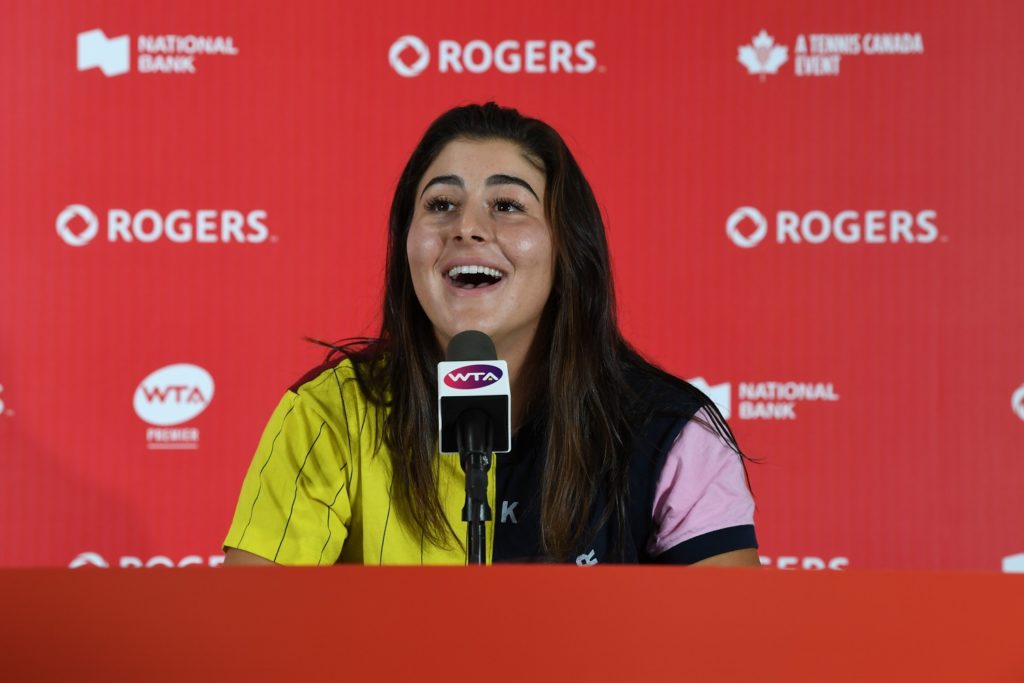
Along with her abundant skills, Andreescu has a human side that was obvious in the compassion she showed for Williams after the startling ending.
And her personality is naturally extroverted and playful. An example is a post-match exchange during Canada’s Fed Cup tie in the Netherlands last February, when she won both her singles matches to key Canada’s victory in a World Group Playoff.
Here’s how it appeared then in this blog:
“It’s written on the Fed Cup website that Andreescu’s coach is Frenchwoman Nathalie Tauziat – a player-coach partnership that has been over for a while. When a Dutch reporter asked her about who her actual coach is, that led into some fun-and-games, back-and-forth involving Wikipedia.
“We stopped working a year ago,” Andreescu said about Tauziat, who was with the Canadian team this past week as coach. “Right now it’s Sylvain Bruneau (from Montreal). I think on Wikipedia it’s correct. They took out Nathalie’s name.”
Laughing, Andreescu came clean, “I actually changed that. It’s so easy to change things on Wikipedia. And my height too – it said I was 5’-5”. I am not 5’-5”. I changed it to 5’-7.”
One thing is unchangeable, her parents – Maria and Nicu.
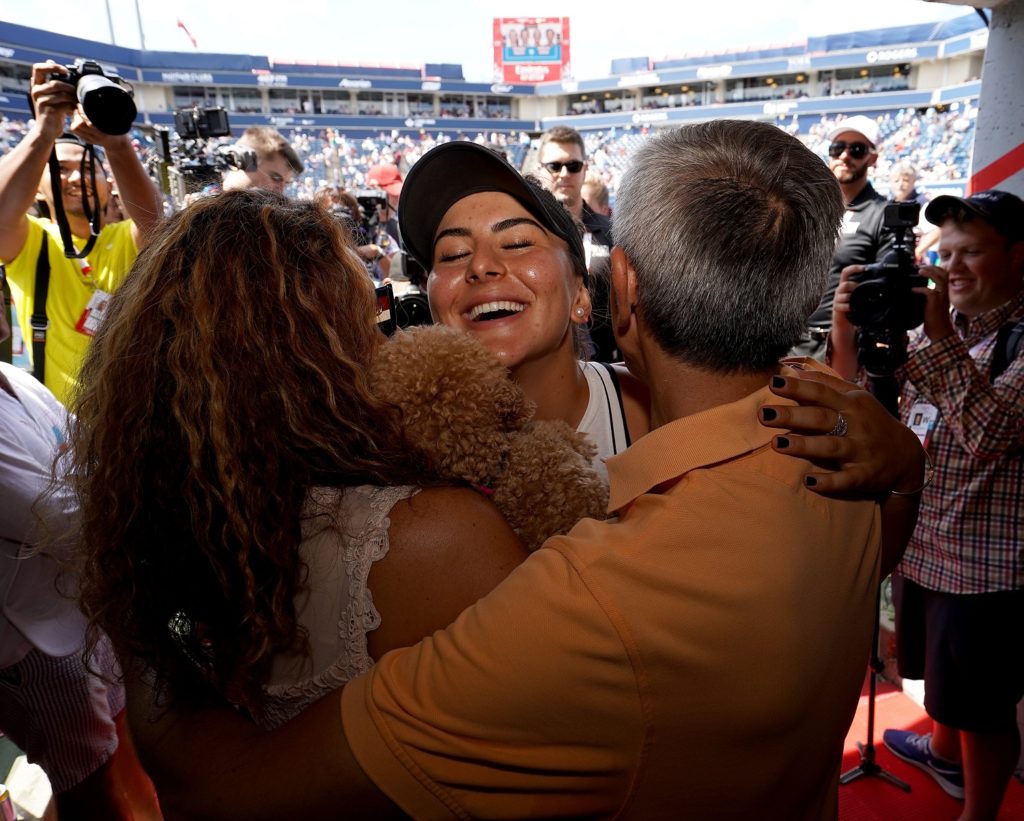
Rare is the top tennis player who succeeds without parental help and guidance.
Here’s what the 19-year-old, who was born in Mississauga, Ont., went back to Romania as a child and then returned to Canada at age 11, said about her mother and father:
“I’m the only child, so they’ve been going through everything for the first time like I am. So we’ve been doing it together for the longest time.
“Ever since I moved back to Canada to pursue my game, we’ve been sacrificing a lot of things. But I don’t necessarily call it a sacrifice because this is what I wanted to do.
“And we all dedicated everything we had to this sport. It wasn’t easy. There’s always ups and downs like in anything.
“But they’ve been supporting me with every decision that I’ve made. They’ve been honest with me, telling me how it is when I don’t want to hear it, obviously.
“And all I can say is that all that hard work, dedication, and sweat is all worth it in the end. Nothing beats this feeling.”
Andreescu dreams big and has the hunger to do better. Appearing on CNN via Skype on Monday, she was asked about 23-time Grand Slam champion Williams and replied, “I strive to be like her, or even better – who knows?”
FAMILIAR NAMES AT ODLUM BROWN VANOPEN
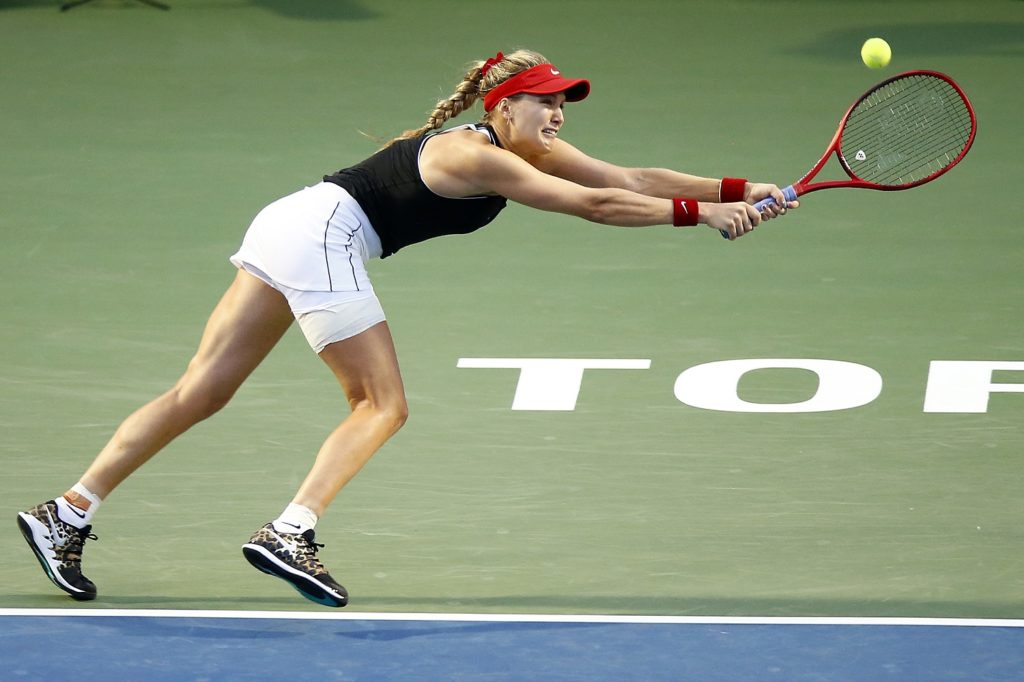
The 2019 edition of the Odlum Brown VanOpen, a $108,320 Challenger on the ATP Tour and a $100,000 tournament on the ITF circuit, has strong fields with several players known to tennis fans.
The big names in men’s draw even include top seed Ricardas Berankis (he upset Denis Shapovalov at Wimbledon), second seed Steve Johnson as well as international players Ernests Gulbis, Evgeny Donskoy, Hyeon Chung, Victor Troicki, Mischa Zverev (lost) and Thanasi Kokkinakis.
The Canadians at the Hollyburn Country Club in West Vancouver are third seed Brayden Schnur, Vasek Pospisil, Peter Polansky, Filip Peliwo, Ben Sigouin, Alexis Galarneau (lost) and Liam Draxl (lost).
The women’s event features Canadians led by Genie Bouchard along with Leylah Annie Fernandez, Carol Zhao, Carson Branstine and Layne Sleeth.
Bouchard has a challenging first round against Timea Babos. The 26-year-old Hungarian is ranked No. 125 but has been as high as No. 25 in 2016. She’s currently No. 3 in doubles and is coached by Bouchard’s former coach (until April) Michael Joyce of the U.S.
Babos leads the head-to-head 2-1 but Bouchard won their last meeting 6-4, 6-2 in Luxembourg last October. Now ranked No. 114, the 25-year-old Montrealer is on a nine-match losing streak dating back to February.
The Bouchard – Babos first-rounder is third match on after a 10 a.m. (1 p.m. ET) start on Tuesday.
NOAH’S BIG BITE
Yannick Noah, the rock-star Frenchman who was the last man from is country to win Roland Garros (1983), is 59 years old. We’re not sure if this is a fish bites man or man bites fish story. But it’s pretty cool video although there are some doubts about whether it was staged or not – is that fish alive?
(Feature Photo: Jared Wickerham)
